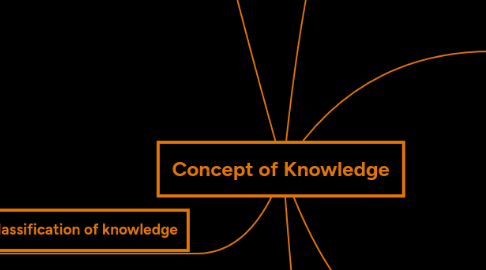
1. Definition
1.1. Literally from Arabic word ‘ilm, which means:
1.1.1. Al-Ma’rifah (المَعْرِفَةُ): knowing by experiment
1.1.2. Al-Fiqh (الفِقْهُ): Understanding
1.1.3. Tadabbur (تَدَبُّرُ): Observation
1.1.4. Basiran (بَصِيرًا ): Mental perception
1.1.5. Tadhakkur (تَذَكُّرُ): Remembrance
1.1.6. Tafakkur (تَفَكُّرُ): Thought
1.2. Meanwhile, it is technically means:
1.2.1. Realization of the meanings of things (Al-Ghazzali)
1.2.2. The arrival of the ma‘na (meaning) of an object in the soul & its arrival at the meaning. (Al-Attas)
1.2.3. Realization of something in its true nature
1.2.4. A firm belief that accords with the reality of things (47: 19)
2. Classification of knowledge
2.1. Limited knowledge
2.1.1. Gifted
2.1.1.1. Natural knowledge (daruri)
2.1.1.1.1. Knowledge imparted in the very nature of the creation like the instinctive knowledge of animals and human babies
2.1.1.2. Sacred knowledge
2.1.1.2.1. Knowledge that Allah teaches men by way of Revelation to His Messengers
2.1.2. Acquired knowledge
2.1.2.1. Acquired through effort by way of reflection, sense perception and experiment, experience
2.1.2.1.1. Blameworthy knowledge
2.1.2.1.2. Praiseworthy knowledge
2.2. Absolute Knowledge
3. Purpose of Seeking Knowledge in Islam
3.1. To practice with it. This is what Prophet Muhammad (pbuh) asked in His prayers:
3.1.1. "O Allah! Make my Ilm profitable for me, give me knowledge which is profitable and add in my knowledge.” (Tirmidhi, Da‘awat, 128)
3.1.2. “O Allah! I seek your refuge from useless knowledge.” (Tirmidhi, Da‘awat, 68)
3.2. To achieve the happiness of both worlds (hasanah fi al-Dunya wa al-Akhirah)
3.2.1. This world is like a field in which our actions are sown like seeds and they grow into plants which are then harvested in the next world
